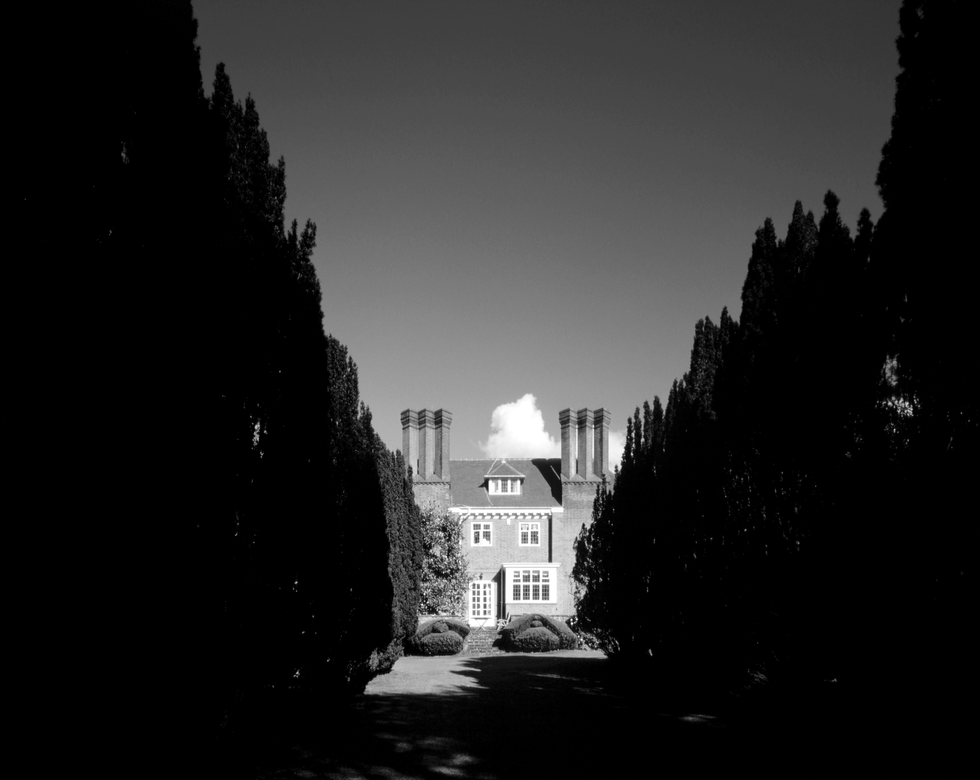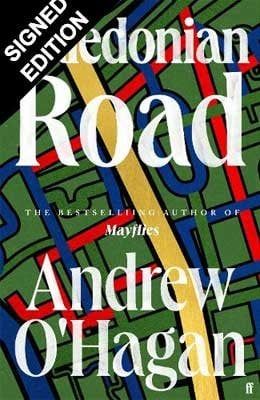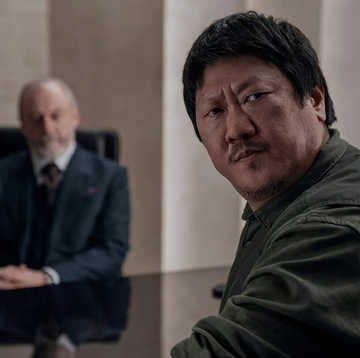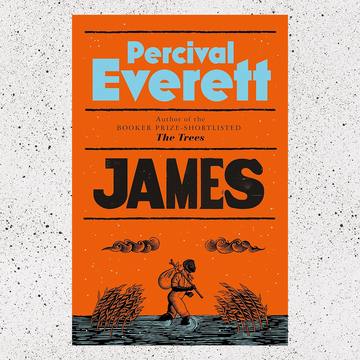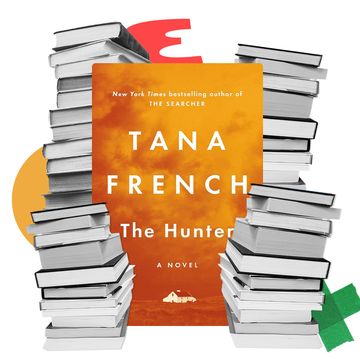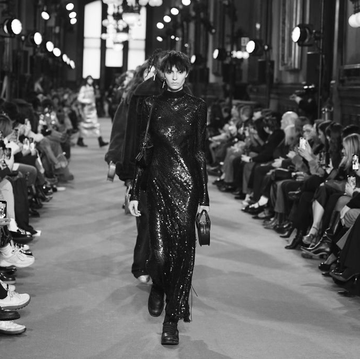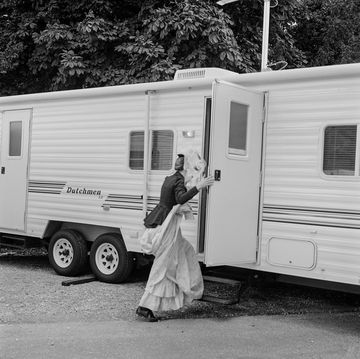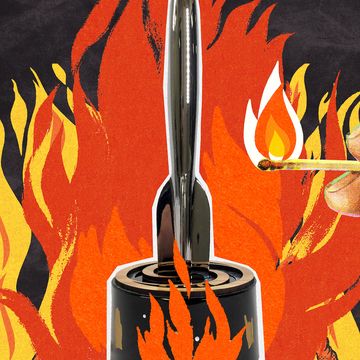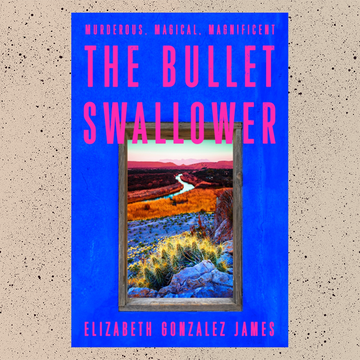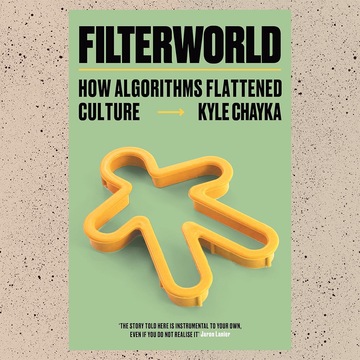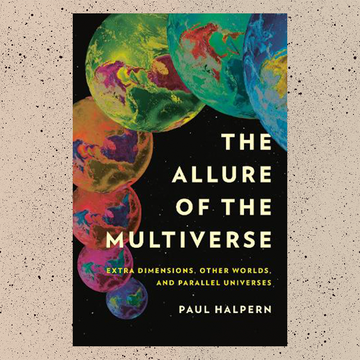The story so far: London in the spring of 2021. Billionaire Russian oligarch Aleksandr Bykov is living proof that money can buy you statement art, global influence, and the back-channel services of the British establishment. What it can’t buy you is a son worth a damn…
Some men dream of oil, its slick, black eminence, and Aleksandr Bykov drowned in a sea of oil every night, an expanse of abysmal calm. As he slept, that ocean could also seem like an immense painting, the bright moon high above him. Aleksandr knew he couldn’t be heard, his limbs pawing slowly as he tried with all that was in him to reach the surface. He woke relieved each day with an idea in mind, usually a sentence, often in English, and that morning he blinked open his eyes and said, ‘Loyalty is the question and the answer.’
He pressed a button and the curtains opened onto the tall, wet Surrey trees. A work by Jeff Koons hung on the opposite wall, subtitled Goya The Family of Carlos IV, a blue mirrored ball embedded in the centre and reflecting back an expanse of oatmeal carpet and Aleksandr himself sitting high on his chariot of pillows.
Stepping out onto the balcony, he shook his hair with both hands, driving out the night. He made a judo move and then another, greeting the outdoors. A flock of pigeons scattered from the mansard roof. This is not July weather, he thought: what happened to linen shirts and sports convertibles and glasses of Pimm’s? He came back in and rang for tea. His man would place a cup on the marble table and he would take it there after his bath, listening to Radio 4. Aleksandr’s English was better than the natives’, because language was his thing: he now had an Arabic tutor twice a week. ‘I have limited knowledge of physics today,’ he once said to the Emir of Qatar, ‘but I can asset-strip in fifteen languages.’
‘He speaks of the past in Russian,’ his former wife had said. ‘For the future, he speaks in English, the language of his pride.’
‘These people are in debt to me,’ he said into his phone, mid-morning. He was sitting at the breakfast table in the white conservatory. Huge rubber plants obscured the windows and the rain was falling still. He was talking to one of his fixers in the House of Lords about the closure of his mansion in Washington DC. ‘These American banks. These diplomats. These officials – fucking bureaucrats. They are in debt to me in ways that you will not fail to understand, Lord Haxby.’
‘Indeed,’ Haxby said. ‘It’s ridiculous. But we are working at the very heart of government to have these sanctions removed.’
‘It’s absurd to be punished for being a friend.’
‘A hundred per cent. And that is our submission.’
‘Deal with them, please. That’s why we pay you. I have been a permanent participant in the World Economic Forum since 2007. I am a member of the International Council at Harvard’s Belfer Center for Science and International Affairs. I am on the Board of Trustees of the Metropolitan Museum of Art. We have donated $30 million in the last year to virus research programmes. And they want to talk to us about stupid real estate transactions, human rights bullshit that means nothing?’
‘It’s utter nonsense.’
Aleksandr considered his tea. English people were the best bullshitters on the planet. They could fall back on a thousand years of bluff and superiority, yet in the real world they were powerless, using words because they had no plans. He had never met an Englishman who wouldn’t do anything for a million dollars. ‘I want to see these people shamed in the press and opposed by your government.’
‘We’re on track,’ Haxby said.
Lord Scullion arrived. He and Aleksandr never shook hands, but they nodded at each other as they took their seats in the long drawing room.
‘You seem tranquil,’ Scullion began.
‘Not entirely, as you English like to say.’
‘Really? What’s the issue?’
Aleksandr ignored the question. He stared at the artworks opposite them.
‘What do you think of that?’
‘What?’
‘These three paintings.’ He pointed and Scullion turned. Taking up the whole space, a metre from a Rodin bronze, was a triptych by Francis Bacon. ‘It cost more than $120 million, in a private sale.’
Scullion walked up and put on his glasses.
‘It’s very ugly, isn’t it?’ Aleksandr said.
‘I wouldn’t say that,’ Scullion replied.
Aleksandr got up and joined him. ‘They’re about revenge,’ he said.
‘Really?’
‘That’s what my son told us. They’re all based on the Crucifixion. The Son of God in the middle and the thieves on either side.’
‘Yes.’
‘Except, this time,’ Aleksandr said, ‘it’s like body parts. You can see the middle one’s spine all broken. The third one is based on a pelican. Blood everywhere. And maybe a door at the rear to let the spirits in.’
They didn’t look at each other. The tension present in the Bacons seemed to diffuse rather naturally into the space between them.
They returned to the white sofas. Scullion told of his attempts to deploy parliamentary muscle, as he called it, to the task of legitimising Aleksandr’s business interests. He told a long story about government necessities, the need to field public anxiety, but he assured him that the people in power understood his contribution.
‘Do we have the government?’ Aleksandr asked.
Scullion hesitated. ‘We have influence. That was always our goal, to make London a place where you could enhance your influence.’
‘True capitalism begins with the state.’
‘That’s what we did with our socialism too,’ Scullion said, smiling. ‘You’ll remember, back in the day, Blair was awfully keen.’
‘Interesting person. Yearns to be liked, especially by God.’
‘We all have our weaknesses, Aleksandr.’
‘Yes. I have my son.’
Scullion looked like he wouldn’t disagree. It was one of the ways he gained favour, not by suggesting he had no morality, but by implying it was completely flexible. ‘Investments have become terribly tangled,’ he said. ‘I’m sure we’ll deal with that when the others arrive.’
‘Others?’
‘I’ve asked William Byre to join us for a minute. Merely to obtain . . . clarity.’
Aleksandr was lost in the pictures again. ‘I think we paid at least $35 million too much for those Bacons.’
‘Really? And was Yuri involved?’
‘He’s been involved in every major purchase, as I told you. Not only here and in the other houses, but for . . . well, my greatest friends.’
‘He’s involved with this dealer – Nicolas Lantier?’
‘Yes. One of Yuri’s little monsters. And even for monsters, his are especially greedy and careless. This one . . . Belgian, in a large, open-necked shirt . . . his clients are auction houses, galleries, foundations. And now some of my friends are his clients. My son used to play games but now he is mad.’
‘Well, I believe he’s gone in a little over his head,’ Scullion said, ‘several times over, perhaps. His relationships with these criminals . . .’
‘Low lifes.’
Scullion told him about the meeting at 5 Hertford Street. He said he had warned Yuri about the embezzler and the people trafficker.
‘And how did he respond?’
‘He has a bee in his bonnet,’ Scullion said. ‘He wishes to be independent and these are the distorted ways he chooses to show it, by running with the worst kinds of individuals. The drug dealers and so on, all leading to this man Feng . . .’
‘Who is this person?’
‘He might not exist. It’s the name associated with an international crime syndicate, smuggling people across borders.’
‘He’s nothing, then . . .’
‘We don’t know. Nobody knows. He, or they, or it, is a sinkhole.’
‘My son will die trying,’ Aleksandr said suddenly. ‘He has no sense of duty or destiny. It is a horrible thing.’ He paused for a very long time. ‘I put you in charge of energising him, Paul.’
‘I believe he may still listen. I’m sure he will.’
Aleksandr took a breath to focus on larger concerns.
‘My mansion in Georgetown,’ he said. ‘I want to see it again.’
‘There’s a pain in the arse in the FBI’s Art Crime Team. A fanatic. All he can talk about is laundered money.’
‘Well, give him something else to talk about, Scullion. Give him something.’
‘Like what?’
‘I don’t know. A Monet.’
Scullion stared at him, a little disbelieving.
‘I’m a businessman,’ Bykov added. ‘So, let’s do business.’
Aleksandr beckoned Scullion and they stood up and walked through to the conservatory, where rain drummed against the glass. They discussed other business relating to gas companies and banks, and Aleksandr studied his British henchman as if he was a rather poor painting, wondering what kind of skin regime would cause a man to look so terribly smooth and cold.
During lunch, William Byre arrived in a Rolls-Royce Ghost. Nothing like a condemned man, he walked into the conservatory with his arms swinging.
‘Hello, Paul, Mr Bykov,’ he said. ‘It’s bucketing out there.’
‘Sit down, Mr Byre,’ Aleksandr said, without shaking hands. ‘Will you eat?’
‘I’ll always eat.’
Aleksandr pointed to where he could get a plate. ‘Thank you for helping me with my friend’s passport,’ Byre said to Scullion, as he served himself.
‘What’s this?’ Aleksandr enquired.
‘An old friend of mine, art historian. Lost his passport a week ago.’
‘It was nothing,’ Scullion said. ‘A single call.’
The footman brought a glass and Byre poured himself some wine. Aleksandr was revolted by the way he turned the label towards himself.
‘Ah. Raveneau Chablis Blanchot,’ Byre said approvingly.
Lord Scullion was a master of pace: he never said anything too quickly, having the English habit of niceties, gracious formalities which must be observed, even or especially in a crisis. He had helped Byre, he was friendly to him, but he would not hesitate when the moment came to dispatch him from their sphere of interest.
‘Now, old boy,’ Scullion said after the peaches. ‘When the man comes to the door, he comes for everything.’
‘What’s that?’ Byre said.
‘We know these are difficult times for you. We gather there are fresh allegations to do with sexual abuse. The rumour-mill says that online hackers are pursuing the matter with gusto. But we profess no interest in that.’
Sir William, the foolish knight, picked up immediately on what Scullion was saying, and the tone in which it was being said.
‘Who’s “we”, Paul?’ he said, wiping his mouth.
Aleksandr spoke, putting his knife down.
‘Let’s say we are the people who own all your assets but find them to be a little light.’
‘How light?’ Byre asked.
‘I think you know, William.’
‘Well, let me help our friend,’ Aleksandr said. ‘Since 2017 you have borrowed $240 million to begin these malls in Saudi Arabia.’
‘They have fallen through. There are insurances.’
‘No, you have fallen through.’
Aleksandr leaned back in his chair. ‘You people are not even good at stealing. These funds show in your accounts. You are a thief and we will give you five months from today to repay the money.’
‘That’s a generous time frame,’ Scullion said. ‘We take account of your personal difficulties. We understand.’
Again, Byre bristled. He shook his head, turning to Scullion. ‘We? It used to be “we” in the Trades Union Congress, then it was “we” in the party. I never had any truck with that. For a while it was “we” in government, “we” at Number Ten. Who is “we” now? “We” in the City? “We” in the state industries of Russia? “We” in the Bank of Cronies? “We” at this table, Paul? Or “we” in the United Arab Emirates? Which “we” are we?’
These men have no discipline, thought Aleksandr. They don’t care about the long-term interests of their friends; there is nothing of the nation in their way of seeking success. No loyalty. Each Brit is an island, and they only play at being international.
‘Go now,’ Aleksandr said to Byre. ‘You’ll hear from us.’
‘Fuck you,’ Byre said, banging the table. ‘How dare you dismiss me like a servant.’
‘Goodbye,’ the Russian said simply. ‘And you can take that glass with you.’
Yuri came late, arriving after Byre was gone. Aleksandr was looking out from one of his long Georgian windows, and he watched his son’s driver get out with an umbrella bearing the word ‘Garsington’. Yuri entered the drawing room wearing a blue velvet jacket and black tie, a pair of slippers with a crown sewn onto their fronts. His blond pompadour was ostentatiously fake. The boy seemed luxuriant.
‘You are very late,’ Aleksandr said. ‘And you look grey.’
‘To quote the poet, “I am ashes where once I was fire,”’ Yuri said, pulling a silk scarf from around his neck and licking his lips. He gestured at Scullion with a languid hand. ‘I see you’ve brought the dogs inside, Papa.’
Aleksandr considered the problem without a word. He’d provided his son with the makings of an enviable career: an apartment on Piccadilly, the running of a company, a deep fund at his disposal – but Yuri was a lost boy. Some people are born with one eye and some with a faulty heart, a diseased brain, a curved spine: Yuri was born with a tendency towards self-destruction no matter what he was given.
‘You are my son,’ Aleksandr said, ‘but you are nothing.’
He walked to a drinks table and poured himself a large neat vodka. The glass sparkled when he held it up.
‘You are nothing,’ he repeated, and sank half the glass in one gulp.
‘Nothing will come of nothing,’ Yuri replied.
Aleksandr’s perfectionism could quickly turn to uncontrollable anger. Hearing this phrase of Yuri’s, no doubt another quote, was an insult he couldn’t tolerate, as if the boy’s expensive English education was being thrown in his face. He rubbed his thumb over the ridged sides of his glass and then threw it violently across the room, missing Yuri by no more than an inch. It smashed against the wall splashing a small zip painting by Barnett Newman. Lord Scullion stood up. But he was unable to help Yuri, whose father was now on top of him, shouting in Russian with his hands around his throat.
‘Papa! Get off me,’ he spluttered, pulling away. Aleksandr released him. Yuri used the wall to help himself up, brushing down his tailored trousers. ‘This is who you are,’ he added. ‘A man of violence.’
A splinter had cut Yuri’s hand. He held the hand out and smiled as his father stood back. He felt the smear of Yuri’s blood worked rather well with Onement VI and the Bacons.
‘I cannot protect you,’ Aleksandr said.
‘But, moy dorogoy papa. I never wanted you to.’
‘Your whole life is an extension of mine. Every minute of every day since you were born has been about my choices, my money, my friends, my influence, my hopes, my houses and my thoughts.’ He paused with his tongue against his top teeth. ‘My thoughts,’ he said again. ‘And you are murdering yourself. Tell me why, Yuri. To make your own mark? And you do this by stealing from my friends?’
‘What, you dislike stealing now?’
‘You steal from my oldest friends. Federation people. You choose to go into business with a Belgian crook—’
‘You are speaking of my dear Lantier.’
‘You had the job of investing funds in London. My funds. My friends’ funds. I rewarded you. And now we see you associating with this—’
‘Charlatan,’ Scullion offered.
‘He has embezzled $400 million from my closest friends. Fake valuations, fake pictures . . .’
‘Monsieur Lantier is no more than a servant,’ Yuri said. ‘He does what I tell him. I am a patron of the arts. Lantier makes it easier to do business.’
‘You are living in the sewers.’
‘Lantier’s nobody.’
‘He is now,’ Aleksandr calmly said. ‘And he has fooled you also.’
The Belgian had been in on every deal. The background checks revealed everything. Aleksandr now knew Lantier had overcharged Yuri too, never letting him know exactly how much the paintings were being sold on for, Lantier’s company pocketing the difference. And Yuri had allowed this criminal to touch his most powerful friends. There was Maxim, a founder of Gazprom, who had wanted to offshore money to England and bought one of the biggest houses on Kensington Palace Gardens. He wanted art and Yuri had helped him spend hundreds of millions on questionable works by Modigliani and Van Gogh.
‘They were exquisite pieces,’ Yuri interrupted.
‘You were Maxim’s representative—’
‘Working for him,’ Scullion stressed.
Aleksandr looked at his only son and tried to communicate the last of his pity for him. He couldn’t see the small boy he used to be, the child who climbed on his father’s shoulders, and neither did he see his mother’s charms or any plan for the future. What Aleksandr saw was a weak and hedonistic foreigner with a taste for betrayal. Walking to him, he already felt his son was a thing of the past, a lost investment. He took Yuri’s dripping hand and wiped the blood down his own cheek.
‘Get away from me,’ Yuri exclaimed, pulling back.
Aleksandr glared at him, touching his face and tasting the blood. He turned to Scullion. ‘There are sixty-eight million men in the whole of Russia,’ he said, ‘and I must have this one for a son?’
‘I’ll meet you up in your office,’ Scullion replied.
There are ways of closing a door. Aleksandr Bykov was practised in the art, and he left the long sitting room as if all within it would vanish.
“Caledonian Road” (£20, Faber) will be published on 4 April. For more exclusive extracts from the book novel, check esquire.com/uk
